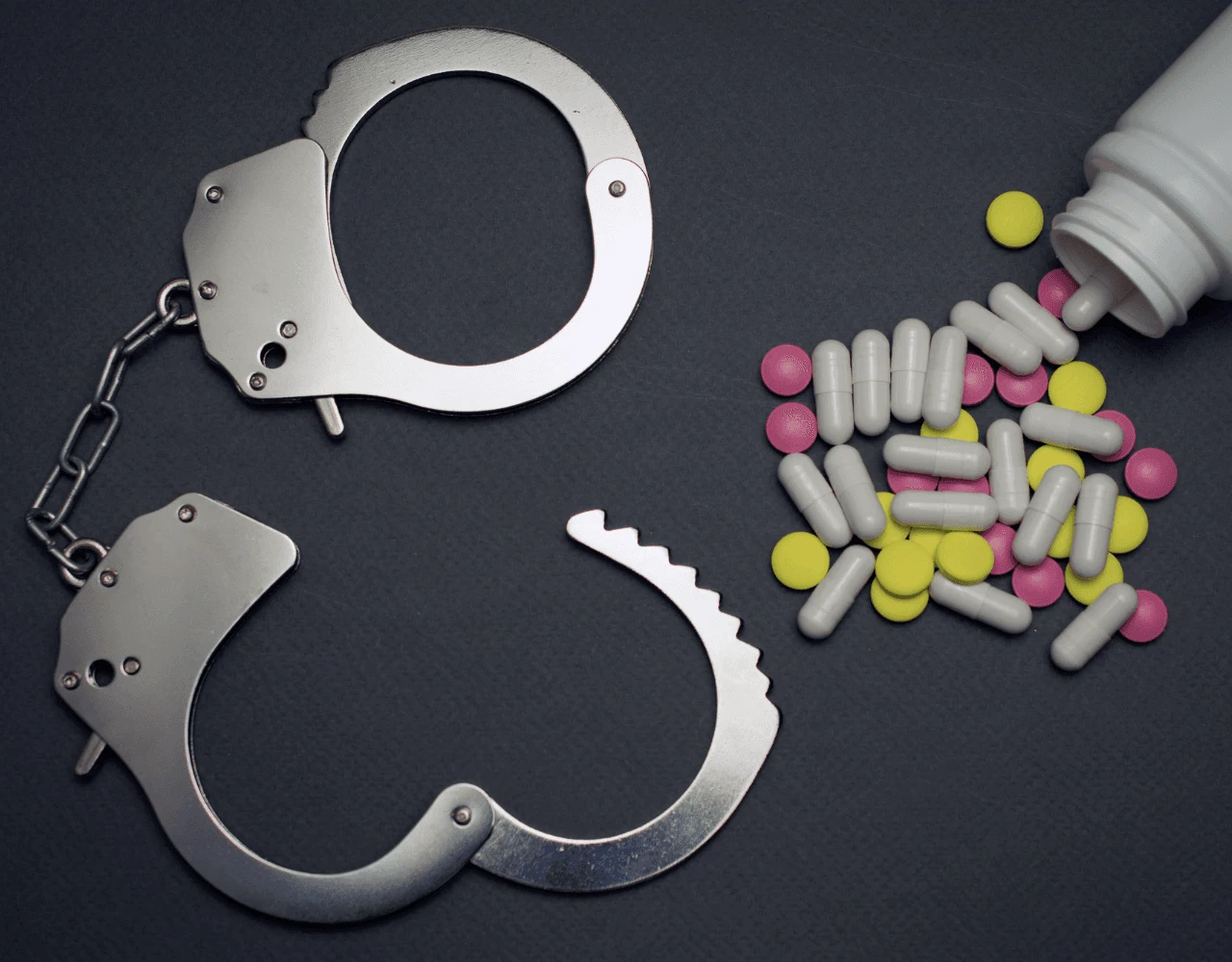Alternative Sentencing Options for Drug Charges in Chicago
2025-04-23T13:15:00
While the 4th of July is supposed to be about celebrating our freedoms, it ironically ends with many getting their freedoms taken away. Since this holiday is a big day for drinking, it’s also a big day for DUIs, especially in the state of Illinois.
If you are one of those unfortunate many whose well-intentioned celebration has turned into a legal nightmare, read on to see how to best handle a 4th of July DUI.

Besides the obvious increase in drinking amongst the nation’s residents, another factor in the increased amount of DUIs on the 4th of July is an increase in police activity.
Police know that people are drinking more, so they send out as many cops as they can in hopes of catching as many drunk drivers as possible. Not only will cops be patrolling in full-swing, but they will also set up routine checkpoints in busy areas that drivers will be all but forced to drive through.
Once you’ve made the mistake, all you can do is attempt to deal with it as calmly and effectively as possible. Not only does this entail consulting the right lawyer, but it also entails knowing what to expect and knowing everything you need to know about the crime you committed.
Being put under arrest for a DUI is a complicated business, especially in Illinois. Compared to some other states, Illinois certainly doesn’t go easy on its drunk drivers. For starters, your vehicle will be impounded right off the bat. For anyone who has ever been in this situation, it’s not fun and it’s not cheap.

Having your vehicle impounded can cost you an arm and a leg, but that’s nothing compared to some of the fines and fees you will be facing down the road. An average DUI will end up costing you thousands of dollars in such things as administrative court costs, judicial fees, and legal counsel. As well, without proper guidance, you may very well end up having to pay much more than you bargained for.
Beyond the immediate impounding of your vehicle, there is also the matter of Statutory Summary Suspension. If you are pulled over for a DUI and you either blow above the legal limit or refuse to blow whatsoever, Statutory Summary Suspension goes into effect 46 days after the day of your arrest. No, you don’t have to be convicted of the DUI for your license to be suspended.
Statutory Summary Suspension happens separately from the courts and is a complication you are going to have to resolve apart from your legal battle. Effectively, as soon as Statutory Summary Suspension goes into effect, your driver’s license is suspended.
To get your driver’s license back, there are all sorts of hoops you have to jump through, classes to attend, and paperwork to fill out. It’s not easy, and it’s going to take a lot of patience. The process is always going to go a lot smoother with an experienced attorney.
The amount of time it will take for you to be able to drive again will depend on whether or not it was your first offense, as well as how high you blew over the legal limit.
There are a few deciding factors at play. Most first offenders should be able to get a temporary permit within a few months of receiving the DUI that will allow them to continue to drive with a Breath Alcohol Ignition Interlock Device or BAIID.
For those unaware, this is a device that is wired into your car and will require you to blow into it before being able to start the engine. If your Blood Alcohol Concentration, or BAC, is above a .025 (well below the legal limit), your car will not start and you may very well be subject to even more fees from the BAIID provider.
As far as Illinois is concerned, the first DUI, and sometimes even the second, are typically considered Class A misdemeanors. However, there are situations in which your DUI can be either a Class 4 or Class 2 felony. Here are some circumstances that might raise your DUI to the felony level:

The consequences will be different depending on the classification of your DUI. Either way, however, the consequences are not going to be a walk in the park. The form of DUI that is considered a Class A misdemeanor will typically entail the following:
On top of these legal consequences, there are also many incidental effects of a DUI on the average person. For instance, a typical DUI conviction will likely see your insurance rates skyrocket for the next several years. As well, your DUI is liable to stay on your record for the rest of your life, meaning that all future employers will be able to see it.
If you are convicted of the felony form of DUI, you are going to be subject to all of the above and then some. Some things to expect are increased fines, increased time without a license, more community service hours, and up to seven years in prison.
Related: Is DUI A Felony In Illinois?
As is typical with interactions with police, your best bet is to stay calm and only speak when spoken to, if at all. The most important thing is to be aware of your rights. As we all know, “everything you say can and will be used against you”. However, this doesn’t necessarily mean that you want to be defiant, as that is liable to just make the cops go harder on you.
One of the most important things to be aware of is that the field sobriety test, or FST, that police perform is voluntary. This means that when police ask you to blow, you have the right to say no. But should you? The issue is somewhat complicated, but here’s what to keep in mind when making your decision.
Related: Should I Take A Breath Test If I Am Pulled Over For DUI?
Technically, you are not going to be subject to any extraneous penalty for refusing to submit to a sobriety test before your actual arrest. However, that’s only referring to court penalties. As we’ve discussed, refusal to submit to a field sobriety test will mean that your license is automatically suspended. Still, if you are under the influence and you blow over the legal limit, your license is going to be suspended no matter what.
The important thing to realize is that refusing to blow could put you at a tactical advantage. For one thing, it will make it hard for the courts to create a solid case against you.
If you refuse the preliminary field sobriety test done before your arrest, you will still be asked to submit to one back at the station. If you feel confident that your BAC has decreased below the legal limit, you may wish to submit at this point.
What could be better evidence for your case than a verifiable test done showing you were below the legal limit? However, if there is any doubt, you may still wish to refuse until you can consult with your attorney.
The only thing that you truly have to give to the police is your driver’s license, proof of insurance, and registration for your vehicle. Anything else you can keep inside you until after you’ve consulted with your attorney. The police are liable to ask you plenty of in-depth questions as soon as they start interacting with you, but, legally, you are not obligated to answer.
Of course, being rude to the police is not a great option. Instead, should you wish not to give any information, politely tell the police that you are choosing to remain silent until you can talk to your attorney. As simple as that.

The police should understand immediately and will likely have a good deal of respect for you for being able to remain calm and succinct in this difficult situation. The same rules hold once you are under arrest and taken back to the station. You will likely be questioned, but you don’t have to answer until you’ve talked with your attorney.
A DUI, regardless of whether it’s considered a felony or a misdemeanor, is a big deal and can be a huge pain to deal with on your own. The system seems designed to make it as hard as possible to come out the other end of the courts unscathed.
The rules and regulations put in place are so esoteric that you are pretty much forced to go to undergraduate school just to get a basic understanding of them. While it’s possible to deal with a DUI on your own, you are going to be grateful for all the help you can get.
As well, there is a lot at risk when you are charged with a DUI. Depending on the outcome, a DUI conviction can be on your record for the rest of your life, even after the actual punishments are over and done with. With an experienced criminal defense lawyer, you have a fighting chance to come out of your DUI with as few negative consequences as possible.
If you have been charged with any form of DUI, getting the right lawyer on your side as fast as possible is always going to be the best option. If you would like a free consultation to see how your DUI case is liable to affect your future and what you can do about it, contact us today!
Our aggressive DUI attorneys have plenty of experience dealing with Illinois DUIs, both of the misdemeanor and felony variety. It is our passion to try and make this difficult time as easy as possible for our clients.

2025-04-23T13:15:00

2025-04-07T11:50:40

2025-03-24T11:55:03

